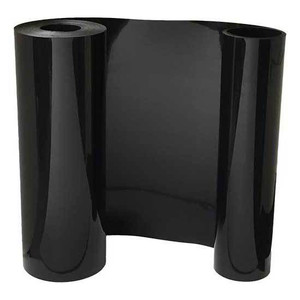- Contains Bamboo Rhizomes
- Manufactured in the USA
- Built-In UV Stabilization
- Made with Recyclable Materials
- 100 year in-ground lifespan
- Joins vertically or horizontally with HDPE Sealant Tape
- Easy to cut with a standard utility knife
-
Deflection side is chrome rolled to provide a superior protection surface











